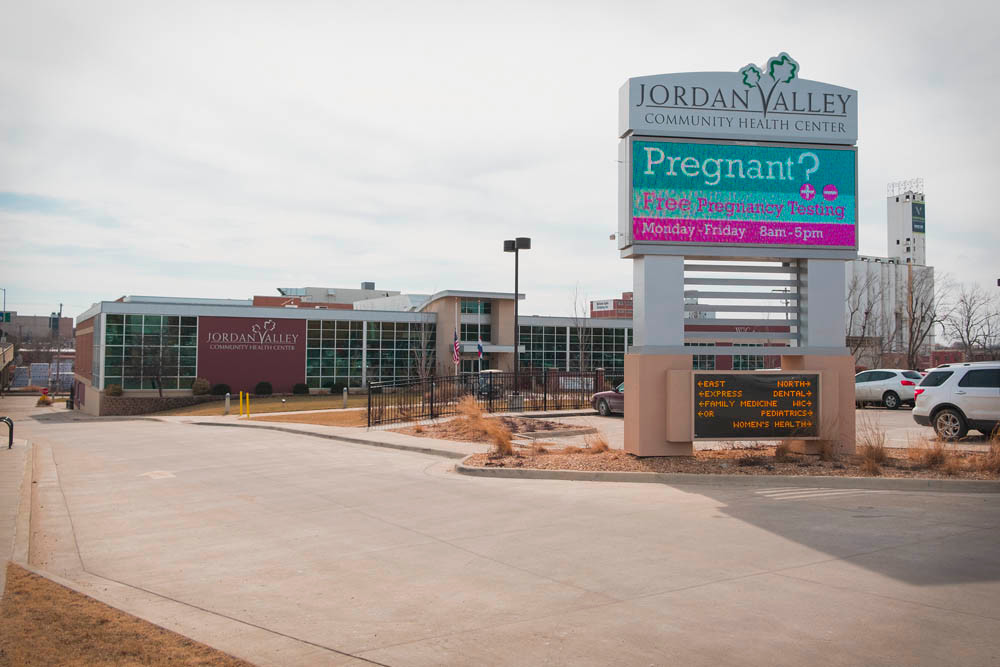YOUR BUSINESS AUTHORITY
Springfield, MO
YOUR BUSINESS AUTHORITY
Springfield, MO

After four months in limbo, billions in funding for federally qualified health centers was reinstated by Congress, giving Jordan Valley Community Health Center and other area clinics a critical shot in the arm.
By a 71-28 vote, the U.S. Senate reinstated an expired Community Health Center Fund in a short-term spending bill meant to avoid a government shutdown, according to media reports out of Washington, D.C. Sen. Roy Blunt, R-Missouri, announced Feb. 8 the legislation he introduced got the green light as part of the budget deal.
The $3.6 billion CHCF expired Sept. 30, 2017, and Blunt and Sen. Debbie Stabenow, D-Michigan, led a bipartisan group to restore the funding for two years, with an additional $600 million.
“We are ecstatic that the fund was passed,” said Jordan Valley Community Health Center CEO Brooks Miller. “We would’ve liked to have seen it be more than two years, but with our current economy, we are very fortunate.”
For Jordan Valley Community Health Center, the move means about $4 million, or 10 percent of its $40 million annual budget, was restored.
But the downtown clinic with nine satellite offices in southwest Missouri is only one of about a dozen other federally qualified health centers in the Springfield area.
According to the U.S. Health Resources and Services Administration, which monitors the FQHC program, there are 25 participating clinics within a 50-mile radius of Springfield. Ten of them are affiliated with Jordan Valley Community Health Center. But all of them serve uninsured and underinsured individuals.
“We take this funding very seriously,” said Tim Shyrack, CEO of Missouri Ozarks Community Health, another area FQHC that operates from clinics from its base in Ava. “We use it to provide everyday services to patients and to offset the costs of uninsured or underinsured patients. We use the funds to continue to hire good doctors, keep our facilities great and hire good staff.”
Other area clinics named by the federal HSRA are Tri Lakes Community Health Center, Douglas County Public Health, MOCH Wellness Center, Reeds Spring Elementary School, Access Family Care, Ozarks Community Health Center, the Fordland Clinic, Quail Creek Dental, Burrell Behavioral Health and Trudi’s Kids mobile units.
At Shyrack’s MOCH, the CHCF monies represent a critical 30 percent of its $11 million-$12 million annual budget to serve its 12,000 patient population.
Both Miller and Shyrack have spent time in Washington, D.C., in the last two weeks discussing the CHCF restoration. Shyrack, who was at the capital when the fund passed, said he visits a few times a year to continue to advocate for community and rural health centers.
Miller said the majority of the dollars designated through the CHCF go directly to Jordan Valley Community Health Center’s sliding fee program for qualifying patients, and the remainder supports daily operations.
“That fund is the core of our organization as a federal health care center,” Miller said. “Health centers are fortunate to have Blunt as an advocate.”
According to the HRSA.gov, FQHCs must provide comprehensive primary and supportive health care services available to all people, with fees adjusted based on ability to pay. They also must meet other performance and accountability requirements regarding administrative, clinical and financial operations.
According to information from Blunt’s office, the Senate’s failure to restore the CHCF would have resulted in community health centers losing up to 70 percent of their funding, as well as an estimated 2,800 site closures, 50,000 job losses and approximately nine million Americans losing access to health care.
“More than half a million Missourians, many of whom are uninsured or on Medicaid, rely on community health centers for quality, affordable health care,” Blunt said in a news release. “This two-year funding extension, which includes a $600 million increase, will provide community health centers the certainty they need to plan for the future and give families peace of mind that they’ll have access to care.”
Utah-based gourmet cookie chain Crumbl Cookies opened its first Springfield shop; interior design business Branson Upstaging LLC relocated; and Lauren Ashley Dance Center LLC added a second location.
Updated: Systematic Savings Bank to be acquired in $14M deal
Warby Parker store planned in Springfield
Former CoxHealth colleagues starting communications firm
Former Wentzville superintendent to get $1M in contract buyout
STL construction firm buys KC company
NPR editor resigns after writing piece critical of organization